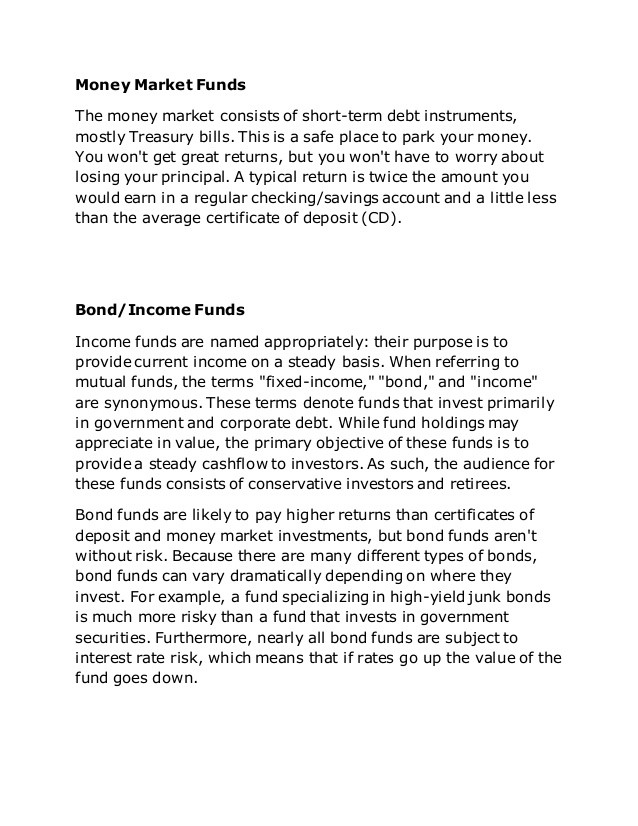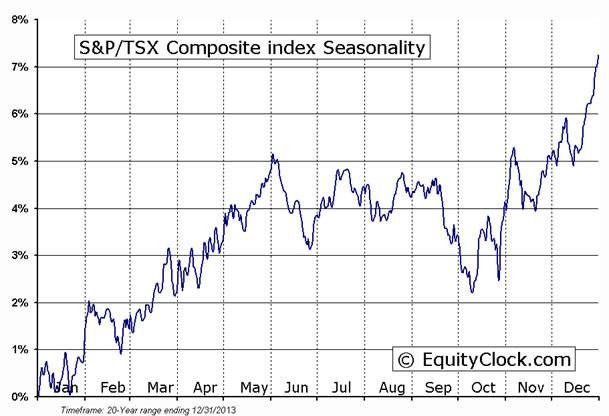Are Money Market Funds a Good Place to Park Your Cash
Post on: 21 Июнь, 2015 No Comment

In the old days a man who saved money was a miser; nowadays hes a wonder.
Author Unknown
Update. This article is featured in the Carnival of Personal Finance #261 posted at Pop Economics. Thank you Pop!
Apparently the May stock market swoon spooked Canadian investors as they withdrew more than $1 billion from mutual funds in May. Investors seeking the safety of cash might normally move money from equity funds into money market funds. Thats not necessarily the case anymore, and for good reason.
If you have your money with an advisor who sells mutual funds, chances are moving your money into money market mutual funds is the fastest and easiest way to reduce your market exposure. But is it the best way? What are the alternatives?
Are Money Market Funds a Good Investment?
At this moment in time, I would answer the question above with definitive no. I prefer to keep my cash in high interest savings accounts or GICs. Here are a few reasons why:
1. Better Yields: In general, most money market funds pay well below what you could earn in a good savings account or GIC. Some banks offer premium money market funds, but those usually require a pretty big minimum investment and I dont know of any that pay as well as some of the better online banks. (Someone please chime in if Im wrong on that.)
2. Safety: I dont want to insinuate that money market funds are risky. They are still among the safest investment vehicles out there. But, unlike savings accounts and GICs, they are not insured by the CDIC (or the FDIC in the States) and can technically result in capital losses. During the 2008 financial crisis, panic ensued when a large American money market fund broke the buck, which means that the net asset value of the fund fell below $1. This is extremely rare, and would only happen if the normally ultra-safe assets in which the fund was invested experienced a sudden and severe drop in value.
3. Lower Costs: Interest rates have gone so low that some fund companies have dramatically lowered or even waived fees altogether. How can you put a .50% MER on an investment vehicle that only yields .35%? That would obviously result in a negative return for the investor. As it is, most money market funds are yielding only a few basis points above zero. Theres no reason to pay any fees for that kind of return. A savings account or GIC is the better alternative here as well.
What Are Your Alternatives?
If you have your money invested with an advisor or even if youre doing it yourself with an online discount broker. it can be very difficult to reallocate to cash without paying transfer or redemption fees, especially if your money is in a registered account like an RRSP or RESP. If you want to sell some of your mutual funds in order to move to cash, you may be subject to a deferred sales charge. If you want to move your money out of an RRSP account with your advisor or a discount brokerage, most will levy some sort of transfer or partial withdrawal fee. Make sure youre aware of those fees before you make your move.
The investment industry does not make it easy for investors to move invested money to cash. My discount brokerage doesnt pay anything for uninvested cash. I looked into Claymores Premium Money Market ETF (symbol CMR) but it really doesnt pay any more than most other money market funds and wouldnt be worth the trading costs, even at only $4.95 a trade. It has a low MER at .25%, but its indicated yield at this writing was just .197%.

The other issue with moving money invested in an RRSP or RESP to a savings account or GIC is that many of the online banks that offer higher rates do not offer those products under the RRSP or RESP umbrellas. For example, ING Direct offers an RRSP savings account (currently paying 1.2%), but does not offer RESPs. Canadian Tire Financial and Ally offer neither RRSPs or RESPs. Their savings accounts pay 1.35% and 2% respectively. (Please note that both of these institutions offer higher rates for TFSA accounts at this writing.) Larry MacDonald recently had some good suggestions on moving cash to higher interest rates with advice from Jim Yih .
You might want to check out credit unions as well, but some of them are locally based and not accessible over the web. A reader recently recommended Steinbach Credit Union (SCU) out of Winnipeg. I havent had the time to really dig into this, but they do offer higher rates on savings accounts and GICs, and they also have RRSP and RESP versions of both. It looks like they have online banking as well. There are some unique accounts for children and teens (what a great idea!) and all of your deposits carry an unlimited guarantee through the Credit Union Deposit Guarantee Corporation. As Im writing this, Im wondering why I havent given them a call yet! Thanks again to Don Juan for the heads up on this one!
The Bottom Line
Whether or not you decide to move some of your money to higher yielding savings accounts or GICs is, of course, entirely your decision. You may not want to go through the trouble of initiating all of the transactions necessary to implement this change of strategy, but it could save you a bundle of cash. You owe it to yourself to take a look at your options, especially if you havent really looked at the investment landscape in a while.
If you really dont want to make any withdrawals from your existing investments, but you still want to build a cash position outside your brokerage or advisors account, you might consider simply halting or reducing regular contributions and rerouting them to the high interest savings account or GIC of your choice. You might also consider setting up a GIC ladder for yourself in order to guard against large interest rate swings.
While researching this post, I found an article from around 2005 that said that money market funds paid 2 or 3 percentage points more than savings accounts. How things have changed in just 5 years. Now most of us would be grateful just to get 2 percentage points in interest at all!
Do you invest in money market funds? Do you have any other alternatives to share?














